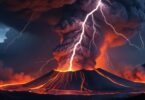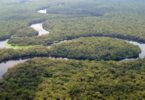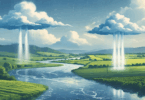Water is life. Every living thing depends on it, from humans to plants, animals, and ecosystems. But the water we rely on is under constant threat from pollution, turning something essential into a serious global issue. The effects of water pollution are everywhere, affecting not just the environment but our health too. Let’s dive deeper into what causes water pollution, its impact, and why we should all care.
What is Water Pollution?
Water pollution happens when harmful substances—like chemicals, waste, or plastics—enter bodies of water such as rivers, oceans, lakes, and even groundwater. When water gets contaminated, it’s not just unsafe to drink, it also damages the environment and the creatures living in and around it.
The Main Causes of Water Pollution
Industrial Waste: Factories discharge chemicals, heavy metals, and toxins into nearby rivers and oceans. These substances, like lead or mercury, poison the water, making it dangerous for both humans and wildlife. For example, in many countries, industrial runoff has polluted rivers to the point where the water is unusable for drinking or irrigation.
Agricultural Runoff: Farms use fertilizers, pesticides, and herbicides to grow crops, but when it rains, these chemicals get washed into rivers and lakes. This leads to nutrient pollution, which causes algae blooms. Algal blooms can deplete the oxygen in the water, suffocating fish and other aquatic life.A real-world example of this is Lake Erie in the U.S., where excessive fertilizer runoff from nearby farms caused massive algae blooms that nearly wiped out the local fish population.
Sewage and Wastewater: Human waste and untreated sewage often find their way into our water sources. This not only spreads diseases like cholera and dysentery but also affects marine life. In developing countries, lack of proper waste management means a huge amount of untreated wastewater is dumped into rivers and seas every day.
Plastic Pollution: You’ve probably seen pictures of plastic islands floating in the ocean. Plastic, especially single-use items like bottles and bags, breaks down into tiny particles called microplastics, which are then ingested by marine animals. The Great Pacific Garbage Patch is a sad reminder of how much plastic pollution has overwhelmed our oceans.
Oil Spills: Oil spills are one of the most visible and devastating causes of water pollution. When oil tankers spill crude oil into the ocean, it forms a thick layer on the water’s surface, suffocating marine life. The Deepwater Horizon spill in 2010, which released millions of barrels of oil into the Gulf of Mexico, is a prime example of how damaging oil spills can be.
The Effects of Water Pollution
Impact on Human Health: Polluted water is a major source of disease. Contaminated drinking water can carry bacteria, viruses, and parasites that lead to illnesses like diarrhea, cholera, and even cancer. According to the World Health Organization, about 2 billion people worldwide use a drinking water source contaminated with feces.
Destruction of Marine Life: When pollutants like chemicals and plastics enter water bodies, they can kill fish, turtles, birds, and other wildlife. For example, dolphins and sea turtles often mistake plastic bags for jellyfish and eat them, leading to choking or starvation. Even if animals don’t die immediately, pollutants can cause long-term health problems. Heavy metals like mercury can accumulate in fish, and when humans eat contaminated seafood, they risk mercury poisoning.
Ecosystem Damage: Polluted water affects the entire ecosystem. Plants that rely on clean water to grow can’t thrive in polluted environments, leading to imbalances in food chains. Coral reefs, often referred to as the “rainforests of the sea,” are particularly sensitive to changes in water quality. Increased pollution can cause coral bleaching, which is killing reefs around the world.
Economic Losses: When water becomes too polluted, industries that rely on clean water, such as fishing and tourism, suffer. In regions where water pollution is rampant, communities lose their livelihood, and the local economy takes a hit.An example is the Ganges River in India. Known for its cultural significance, it’s also one of the most polluted rivers in the world. The pollution affects not only the people who depend on it for water but also the local fishing industry, which has seen a drastic decline in recent years.
Real-Life Example: The Flint Water Crisis
One of the most well-known water pollution cases is the Flint water crisis in Michigan, USA. In 2014, the city of Flint switched its water supply to save money. However, the new water source was not treated properly, leading to high levels of lead contamination. Thousands of residents were exposed to lead poisoning, which can cause severe health problems, especially in children. This crisis highlighted the devastating effects of water pollution on human health and the importance of proper water management.
What Can We Do to Fight Water Pollution?
Water pollution might seem like a massive problem, but every little bit helps. Here are some practical steps we can all take:
Reduce Plastic Use: Cut down on single-use plastics like straws, bags, and bottles. Recycle whenever possible.
Proper Waste Disposal: Dispose of chemicals, oils, and medicines properly. Don’t pour them down the drain.
Support Clean Water Initiatives: Join or donate to organizations that are working to clean up water sources and prevent pollution.
Use Eco-Friendly Products: Opt for organic fertilizers and natural cleaning products to reduce the amount of harmful chemicals entering our water systems.
Conserve Water: By using less water, you reduce the amount of runoff and wastewater that ends up in rivers and lakes.
Conclusion: The Urgent Need to Protect Our Water
Water pollution is a growing crisis, but it’s not too late to act. By understanding its causes and taking small steps toward change, we can all contribute to cleaner water for future generations. The health of our planet—and our own well-being—depends on it.








